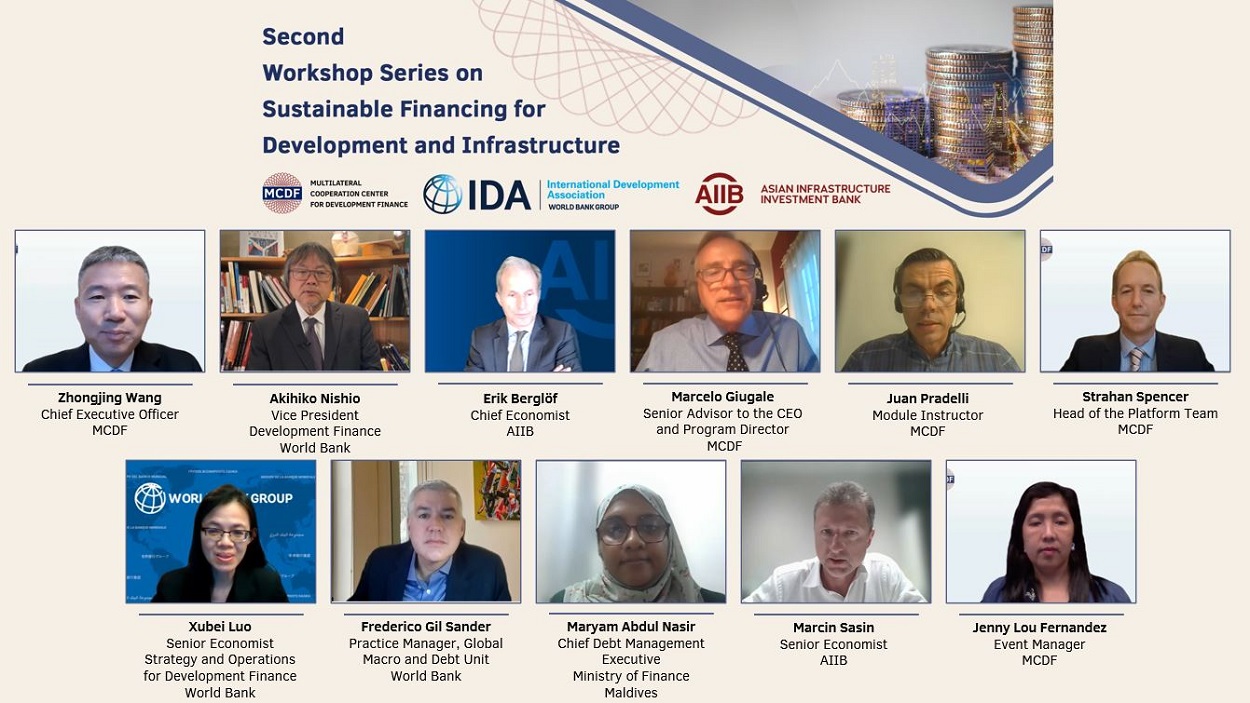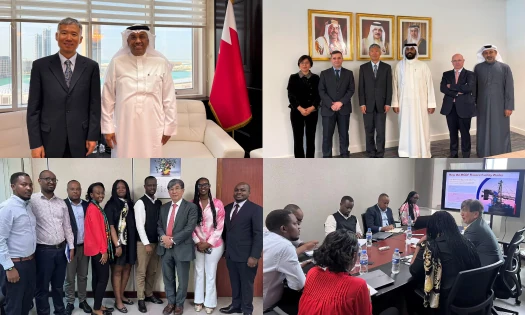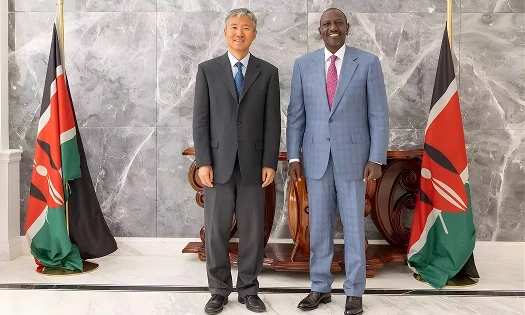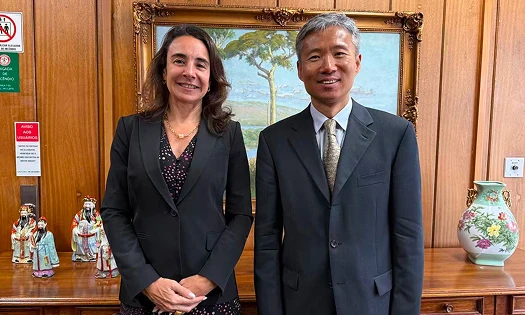The Multilateral Cooperation Center for Development Finance (MCDF), the International Development Association (IDA) of the World Bank Group and the Asian Infrastructure Investment Bank (AIIB) jointly launched the 2nd Workshop Series on Sustainable Financing for Development and Infrastructure with the first workshop on Debt Sustainability Analysis held online between 29 to 31 May 2023. The workshop was attended by 211 participants from the Ministries of Finance, Central Banks and lending institutions of 45 economies as well as from 12 international organizations.
At the opening session, MCDF’s Chief Executive Officer (CEO) Mr. Zhongjing Wang remarked “Promoting the financing of infrastructure in a fiscally sustainable way is one of MCDF’s core objectives.” “With many economic shocks that developing countries have faced over the past two years, the needs of developing country governments and financiers for help in ensuring debt sustainability are greater than ever,” added Wang.
Discussing the aggravated difficulties facing many developing countries, World Bank Vice President of Development Finance, Mr. Akihiko Nishio emphasized that “countries with elevated debt vulnerabilities require enhanced debt transparency and creditor coordination including with the private sector and traditional and nontraditional bilateral creditors. This is the joint responsibility of the borrower countries as well as creditor governments, multilateral development banks and private sector creditors.”
AIIB’s Chief Economist, Mr. Erik Berglof discussed the current global debt landscape, characterized by the increase in interest rates and the fact that many developing countries are already cut off from the international capital market. He noted that future financial flow would be determined by how the current debt issues get resolved while there is also a growing challenge to finance the transition to “net-zero” in the context of climate change. “In the times we are living, ensuring the sustainability of development finance will only get more and more important,” Berglof remarked.
Over the three days of the workshop, the lead instructor Mr. Juan Pradelli took participants through the macroeconomic impacts of development finance broken down into the real and fiscal and external sectors, and then the approaches and tools to analyze debt sustainability with particular attention to those used by the World Bank and the IMF. There were rich Q&A sessions in which Pradelli addressed a large number of questions from participants, and additional presentations were given by the World Bank, AIIB and the Ministry of Finance of the Maldives, to share their analysis and experiences.
This Second Workshop Series on Sustainable Financing of Development and Infrastructure, like the First, has been designed to be both comprehensive as well as to bring together both governments and financiers to improve mutual understanding. It comprises 7 workshops of 3 days each, covering issues including Debt Sustainability Analysis, IDA’s Sustainable Development Finance Policy, Medium-Term Debt Management Strategies, Old and New Tools for Liability and Risk Management, Blended Finance, Financing Options for Infrastructure, and Debt Accounting, Reporting, and Disclosure, to be organized between May and September 2023.
Workshop Series Program Director, Mr. Marcelo Giugale emphasized, "Today, more than ever, we need a common understanding between borrowers and lenders on what makes development financing fiscally sustainable. This second Workshop Series is intended to forge that understanding. And it does it in a comprehensive way, along the entire debt process---from how much and how to borrow, down to the latest tools to leverage private capital in an efficient and transparent way. Over seven workshops, participants will hear about latest techniques and share actual practices. The objective is to create a live platform to deliver knowledge, capacity and assistance."
The First Workshop Series on Sustainable Financing of Development and Infrastructure was co-organized by MCDF and AIIB and comprised 10 modules of 3 days each, conducted between November 2021 and April 2022. The full Series was participated in by over 300 people from 61 countries and economies, 13 international organizations and 16 New Partners (including emerging market financiers).

If you are interested in learning more about this Workshop Series visit our event page here. If you would like to access the event learning materials, please join our digital platform JIGSAW.







